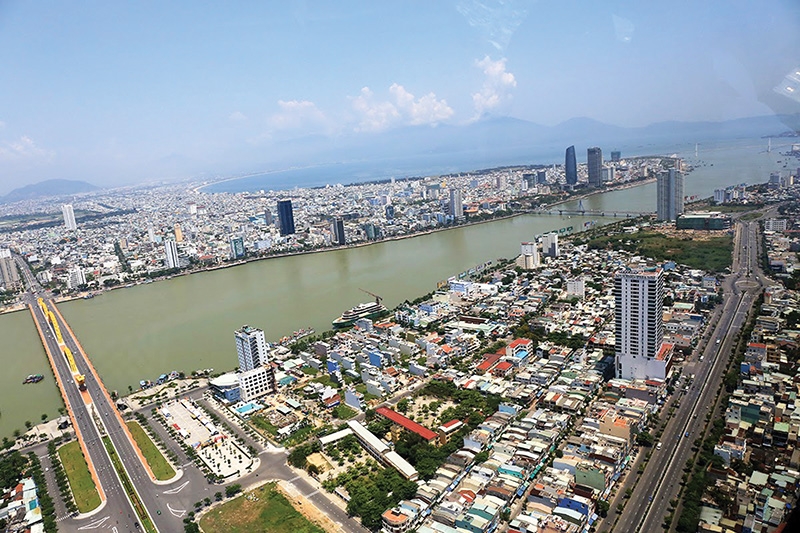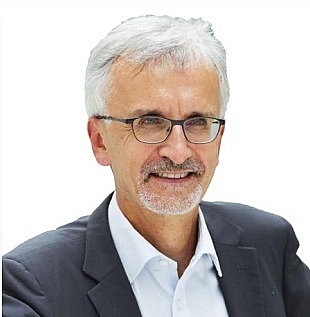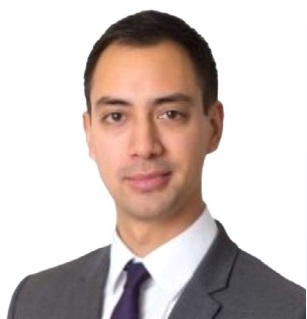Proposals for global financial centres picking up steam
 |
| Danang, along with Ho Chi Minh City, are deemed the best options for creation of a global financial hub |
Ambitions to turn Vietnam into a global financial hub are gaining shape, with Ho Chi Minh City submitting its bid for development and a multinational private-sector consortium getting green-lit to make plans for Danang.
Le Hong Giang, director of Investment Strategies at Tactical Global Management in Australia, said that fintech would be the core factor turning Vietnam into an international financial centre (IFC) by emerging as an efficient payment system buttressing and stimulating the development of commercial banks as well as interbank and inter-country payment platforms.
However, a city needs to first become an economic and commercial centre before ascending to the level of IFC, he added. For this, it will need highly-qualified human resources and a supportive legal environment.
“Many IFCs in the world were established before computers and fixed telephone lines were invented. They still facilitated the smooth flow of capital with a number of skilled professionals and by setting up favourable legal corridors,” Giang said. “Vietnam should provide a fertile ground for disruptive, innovative companies to become a magnet to international capital.”
Financial services providers have been developing at a good pace in Vietnam, Giang explained. “A finance company in Ho Chi Minh City can now operate around the world. However, a financial centre runs on more than just money: it needs data. Vietnam is setting up this database as we speak,” he added.
Meanwhile, according to Minister of Planning and Investment Nguyen Chi Dung, an IFC will attract capital and increase government revenues. “An IFC will provide full financial services with direct access to large volumes of capital from banks, insurance companies, investment funds, and listed companies,” Dung said at a January government meeting on establishment of IFCs in Ho Chi Minh City and Danang.
He also brought up the example of the Cayman Islands in the Caribbean, which has earned the majority of its wealth through its IFC status. “This British overseas territory is now home to nearly 80 per cent of global hedge funds, even though the actual managers work in New York or London,” the minister added.
In March, Chairman of Ho Chi Minh City People’s Committee Nguyen Thanh Phong requested the prime minister’s formal approval of the city’s IFC ambitions, after many years of groundwork. The city’s IFC was designed to be at Thu Thiem New Urban Area – the new economic hub of the city, replacing the overloaded District 1.
The reason for choosing to develop Ho Chi Minh City into an IFC, Phong added, is that the city boasts a prime location – within three hours by air from Singapore, Malaysia, Thailand, India, China, the Philippines, Japan, and South Korea – and is the highest contributor to the state budget. This means financial activities and demands in Ho Chi Minh City are very high and becoming an IFC would help leverage new opportunities for growth.
Also last month, a consortium of Imex Pan Pacific Group (IPPG), Cantor Fitzgerald, Weidner Resorts, and Steelman Partners was approved to jointly finance a plan to develop Danang into a financial centre.
According to Johnathan Hanh Nguyen, chairman of IPPG, developing Danang into a regional financial centre will attract queen bee investors and bring many other high-quality international funds to the city and the central region. “It will be a new, major driver of economic growth, luring in investment and thereby enhancing Danang’s international status,” he said.
The consortium of global companies boasts extensive experience in developing world-class projects to fuel Danang’s IFC synergies. For instance, Steelman Partners is an industry-leading architecture firm specialising in design of innovative, memorable, and revenue-producing projects worldwide. Global Gaming Asset Management, meanwhile, is a world-leading developer of premier destinations and integrated resorts.
“Our team at Shearman and Sterling is thrilled to be part of this exciting journey to build an IFC in Vietnam and make the country an appealing hub for financial business in Southeast Asia. Vietnam is internationally recognised for its vast potential and readiness for significant breakthroughs,” said Barney Reynolds, global head of the Financial Services Industry Group at law firm Shearman and Sterling.
“A lot of groundwork has been laid to modernise the domestic economy and now is a prime time to take advantage of these opportunities,” he added. “The establishment of new financial centres will pave the way for advanced financial services in Vietnam. Also, IFCs could make financial tourism one of the most vibrant and solid sectors in the region.”
Nguyen of IPPG added, “The world’s financial centres are in turmoil, so they have to reshape. Danang should seize this opportunity to become a regional financial centre and attract cash flows from around Vietnam. We want and are determined to make this possible in the next 20 years, to make Vietnam a regional financial magnet.”
| Patrick Lenain - Assistant director, Organisation for Economic Co-operation and Development
For many cities, hosting an IFC is a key source of economic growth, well-paid jobs, foreign investment, and tax revenue. Apart from New York and London, the largest financial markets are today located in the Asia-Pacific region: Hong Kong, Singapore, Shanghai, Tokyo, Sydney, Beijing, and Shenzhen are all hosting large banks, equity markets, and bond trading floors. They are all vibrant centres for corporate lending, securitisation, derivative products, wealth management, fund administration, project funding, and also venture capital. London and Paris have a long IFC history dating back to the 19th century, but other financial hubs are very recent. It has taken just a few decades for Dublin, Luxembourg, Beijing, and Shanghai to become important financial centres with excellent expertise. What can we learn from their experience? Firstly, a business-friendly environment is essential: financial institutions need to interact with a responsive government that can handle efficiently their licensing requests, administrative permits, and other official procedures. Secondly, foreign investors will expect to deal with experienced supervisors that can ensure financial stability, protect the market’s reputation, and enforce the rule of law. Thirdly, well-functioning infrastructure is crucial: airports, highways, mass transit and high-speed digital connections are essential. Finally, human capital is key: banks need to hire many well-educated workers, with skills in finance, accounting, legal affairs, and computing. Ho Chi Minh City and Danang are already attractive cities for foreign investors. International rankings such as PISA acknowledge the quality of education in Vietnam. Major public investments are upgrading the transport infrastructure and digital connections. Establishing official supervision agencies with strong expertise in banking and market trading will be essential. Looking to the future, Vietnam could take a share of fast-rising markets such as blockchain, cryptocurrencies, green finance, and regulatory compliance. Arnaud Ginolin - Director, Boston Consulting Group
Boston Consulting Group has been supporting governments and cities globally to develop their financial centre activities, both for emerging centres and established global hubs. There are natural advantages for Vietnam to build successful financial centres, including a fast-growing economy and related financing needs, stability, lifestyle, and attractiveness for talents, key location within Southeast Asia, as well as trade activities. There is currently a good traction and cities such as Ho Chi Minh City and Danang are well-positioned to emerge as financial centres within the next five years. However, there will be few critical elements to consider to successfully deploy financial centres. Firstly, a clear strategy and specialisation of financial services is needed. For example, Singapore or Luxembourg focus on asset management, with 75 per cent of the assets under management in Singapore coming from overseas. The Berlin financial centre specialises in fintech financing and Hong Kong and Mumbai in commodity trading. Similarly, Vietnamese financial centres will require a clear vision of services to be provided, and what makes them truly attractive compared to other centres. Secondly, an ambitious but realistic deployment plan. We often take Singapore or New York as examples, but these centres developed through various stages over multiple years. Vietnam will need to clearly set a development path and milestones to transition from an emerging player to a regional centre and potentially reach the global finance hub stage. Finally, each of the key success factors of financial centres will need to be thoroughly tackled: business and investor friendliness, innovation and knowledge, talent, infrastructure, financing, branding, and stakeholder coordination. Vietnam has immense potential, yet a fully thought out strategy, well-orchestrated deployment plan together with a clear set of roles and responsibilities for relevant stakeholders are the key pillars required to propel Vietnamese financial centres to the next level. |
What the stars mean:
★ Poor ★ ★ Promising ★★★ Good ★★★★ Very good ★★★★★ Exceptional
Related Contents
Latest News
More News
- VNPAY and NAPAS deepen cooperation on digital payments (February 11, 2026 | 18:21)
- Vietnam financial markets on the rise amid tailwinds (February 11, 2026 | 11:41)
- New tax incentives to benefit startups and SMEs (February 09, 2026 | 17:27)
- VIFC launches aviation finance hub to tap regional market growth (February 06, 2026 | 13:27)
- Vietnam records solid FDI performance in January (February 05, 2026 | 17:11)
- Manufacturing growth remains solid in early 2026 (February 02, 2026 | 15:28)
- EU and Vietnam elevate relations to a comprehensive strategic partnership (January 29, 2026 | 15:22)
- Vietnam to lead trade growth in ASEAN (January 29, 2026 | 15:08)
- Japanese business outlook in Vietnam turns more optimistic (January 28, 2026 | 09:54)
- Foreign leaders extend congratulations to Party General Secretary To Lam (January 25, 2026 | 10:01)



 Tag:
Tag:



















 Mobile Version
Mobile Version